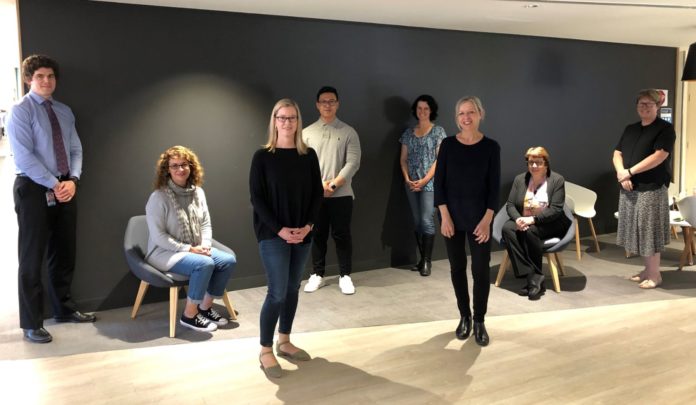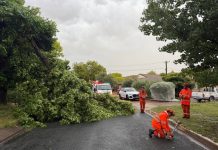
We’ve heard all about the work ACT Health’s Contact Tracing team have done since March in aiding the fight against COVID-19.
It’s been a frantic, time-consuming, stressful, yet rewarding and uplifting time for them all.
The ACT achieved a significant milestone at the end of April in becoming the first Australian jurisdiction to record zero active cases of COVID-19 since every State and Territory first recorded cases.
While there’s now currently one active case, the curve has been flattened on the back of hard work and sacrifice from all of us, but none more so than those working on the frontline.
Canberra Daily recently spoke with Mary Brunton, Tim Sloan-Gardner, Tracey Boyce, Algreg Gomez, and Maria Manton from the ACT Contact Tracing team about what their fascinating line of work has entailed.
With the ACT only recording only one new case of COVID-19 in the last eleven days the workload for our contact tracers has understandably dropped off, however Ms Boyce said back in late March it was “absolutely crazy”.
“I could work anything between 8 hours up to 14-15 hours in the day. Every day was hard to predict as often something would occur just before you were heading home,” Ms Boyce said.
Ms Brunton, Mr Sloan-Gardner, Ms Boyce, Mr Gomez and Ms Manton all came into the job as either health professionals or post-graduate students in health, without any direct experience working in contact tracing.
“As a health professional a lot of the work you do is investigative,” Ms Manton said. “Working with people to determine causes and contributing factors for health issues and using skills and training to help them arrive at solutions.”
Ms Manton said the aspect of the job she’s been most surprised by is just how connected she’s grown to be with some of the many people she’s had to communicate with.
“Making daily phone calls to people and helping them through the range of emotions that goes with a diagnosis, you develop a relationship with them.
“I do wonder if I will come across these people in the course of life, long after this pandemic is over,” she said.
Ms Boyce said she loves how dynamic working in contact tracing has proven to be, with every day being different.
“We ring people every day to see how they are doing, and have discussions with people who are newly diagnosed. The team all have very different backgrounds and the knowledge that is shared has been fantastic,” she said.
While investigating each case plays out differently, one thing that always remains constant is an exhaustive, meticulous line of questioning.
“Questioning needs to be extremely thorough,” Ms Manton said.
“We have a standard set of questions that we use more as a prompt but depending on the answers, we will ask additional questions to gain as much information as possible. We may also need to ring people back with further questions,” Mr Sloan-Gardner added.
Despite many aspects of contact tracing proving to be uplifting, given the nature of their work there are guaranteed to be some tough times too.
“The role is very rewarding and fortunately the hard parts are few and far between,” Ms Brunton said.
“But it is very hard when someone dies or their condition deteriorates because we get to know many of the people quite well when we call them every day.”
With the Commonwealth Government’s COVIDSafe app now having had over 4 million downloads nationally, ACT Health say they believe the data from the app will “complement the existing contact tracing that has proved to be so successful in the ACT in helping stop the spread of COVID-19.”








